Phillippe Villeneuve is the co-creator of Yohomo and the DJ visionary behind unforgettable parties like Tapette, Butt Buddies, Nunu (in collaboration with Karim Olen Ash), and Something For The Lovers. Though often an opener, he's a star in his own mind, having had the opportunity to open for esteemed artists including Polo & Pan, Rina Sawayama, Stromae, Yelle, Robyn, Horse Meat Disco, Carry Nation, and Folamour, just to name a few. With deep involvement in Toronto's queer community, Phil serves as a vital connector, an enthusiastic dancer, and a proud advocate for a pants-free lifestyle.
So I guess the best place to start is to talk a little bit about your music background and where the genesis of DJing started for you.
Yeah. Long story, really long: I grew up in an extreme music home, just not of musicians necessarily. My dad did play guitar, but he just had extreme music on at all times in our home. Like very loud music at all times. He was just very obsessed with all these genres, on record and tapes at that point. So we just had music blasting at all times, and he would make us sit down and listen, and appreciate it. We were very lucky, but at the time we didn't think we were lucky, because we were kids, and we’re like ‘what is this?’ We listened to a lot of Frank Zappa. I dunno if you know, but it’s like extreme, right?
And loud.
So loud! Like every Easter it was Jesus Christ Superstar from beginning to end. So I guess it was very musical that way.
Were your parents involved in music at all or was it just that was what they wanted to listen to?
No, it was deep love. Really music focused, obsessed with sound, and speakers, and quality of sound..
How did you respond to it at that age? Were you open to music as a part of your life?
Yeah. I became obsessed. I was into collecting, at that point it was tape, no vinyl, and then CDs. I was very much obsessed at all times with music in my headphones. I had a briefcase filled with tape slots and I had that everywhere I went because I needed at least twenty-five tape options for my Walkman. Then, same thing with Discman, I had the folder full of stuff.
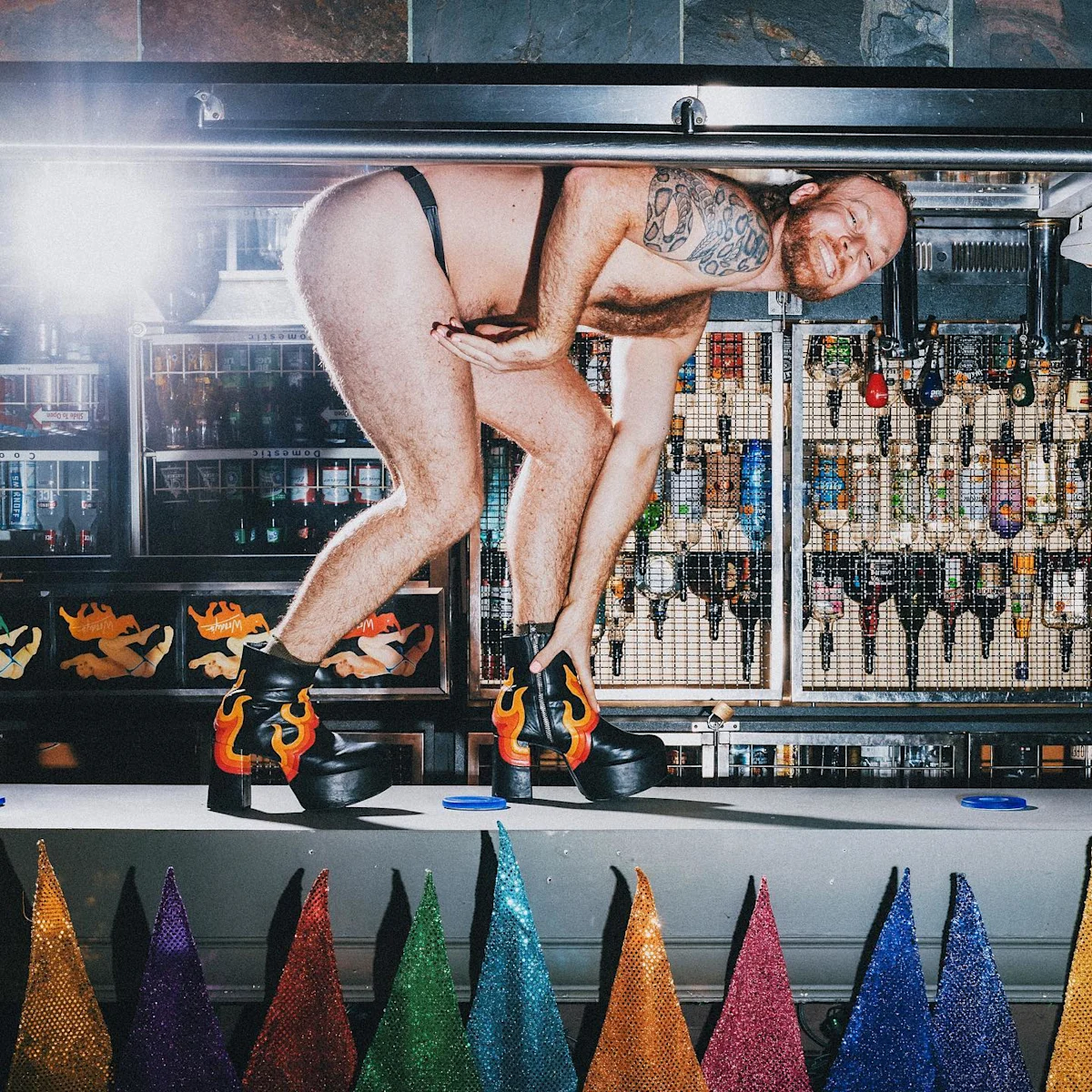
Yes, with the sleeves, and it starts to burst!
[Laughs]
What kind of stuff were you listening to? Did you have stages in your musical development from when you were an adolescent to a teenager?
Yeah, I guess it was from whatever our dad was pushing on to us. I went straight into pop. I don't know how it happened, but I remember finding Madonna’s Like a Virgin on tape and then Michael Jackson, and all these pop artists. I was really just a pop kid. I just love that shit. Pointer Sisters and Stevie Wonder, oh my god, I was just obsessed. Then, when I was a teenager, grunge was big at the time, and sort of twee British folky stuff, but I went right into Dance Mix.
Ah yes.
Like, did you grow up here?
Yeah, I grew up in Ontario.
Yeah. So it was like Big Shiny Tunes or Dance Mix, and I was Dance Mix kid. I was full Eurodance, all the time. So I became obsessed with that, just finding cool dance music from all over the place, and I would make DJ mixes on my double cassette recorder, you know? You could stop, and actually blend stuff.
Where did you grow up? What was your environment? Were you from Toronto?
We were in the sticks. I grew up in Honey Harbour, which is like two hours-ish north of here on Georgian Bay. It's like a really, really tiny town.
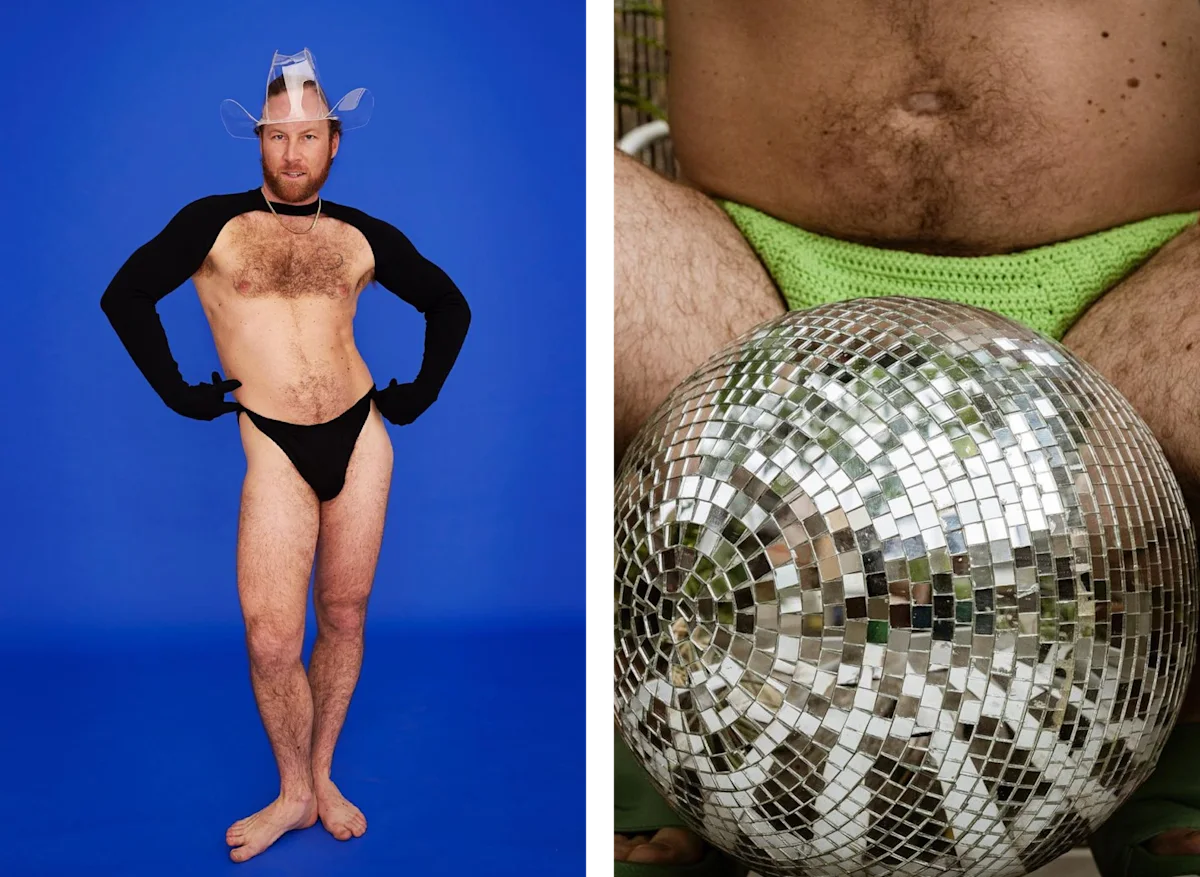
I love Georgian Bay. It's so beautiful.
It's so beautiful. My dad was a park warden in the national park there: Georgian Bay Islands National Park. And my mom was everything in the town. She was like the pulse mistress, and the librarian, and she worked in the bakery. It’s a tiny-ass town, so we grew up on the island until we needed to move to the mainland to go to school in Penetanguishene. We were francophone. My dad's French, from Quebec, so we went to French schools because there is a really crazy Franco-Ontario pocket there. We only spoke French. We went to a French elementary school, and French high school, in this really amazing historic French high school. They fought for public French education. It was a really cool, badass, punk high school. So yeah, we grew up in the tiniest town, in the sticks.
So you're receiving these transmissions, these Dance Mix transmissions, and what are you thinking?
This is coming from a world out there for sure.
Did you feel the pull at some age to leave Penetanguishene?
Not really a strong pull. We would go into Barrie for a concert. To Toronto. My parents would take us a couple of times a year to visit Sam the Record Man and HMV and just do day trips in the big city. But that idea of going to these cities, going to these raves, I still don't know. I should really dig deep into how I got this music, because I was getting access to insane rave music, but I don't even know where from.
This is before Napster? Before file sharing?
It was before all that stuff. I think, maybe, it was kids telling me about that, who were going to raves in the city and coming back and bringing mix tapes. Stuff like that. But then you would discover bands. For me, my favourite band of all time is Deee-Lite - “Groove is in the Heart” – and I was a fan club member. At that time you had mail. You would write to them, and they'd write back! It was crazy. I remember getting that letter. They're from New York City, so that just felt like now I'm connected to New York somehow. By their third album it was all rave music, so they had already gone into underground rave stuff, and I was listening to that stuff from this tiny, tiny-ass home without having been to a rave, or knowing what it was, or doing any drugs.
I love that. It's like this mirage of what you're moving towards, and what could be. When do you break through and actually get to go to your first rave, or did you ever?
Not really.
[Laughs]
I never really went to one in the peak rave moment. Never. Now they're back, but like, as a new thing, its own thing. It's really similar in a lot of ways. So I've been to those. Post pandemic, they’ve really taken off. But I never really, really got to go to one.
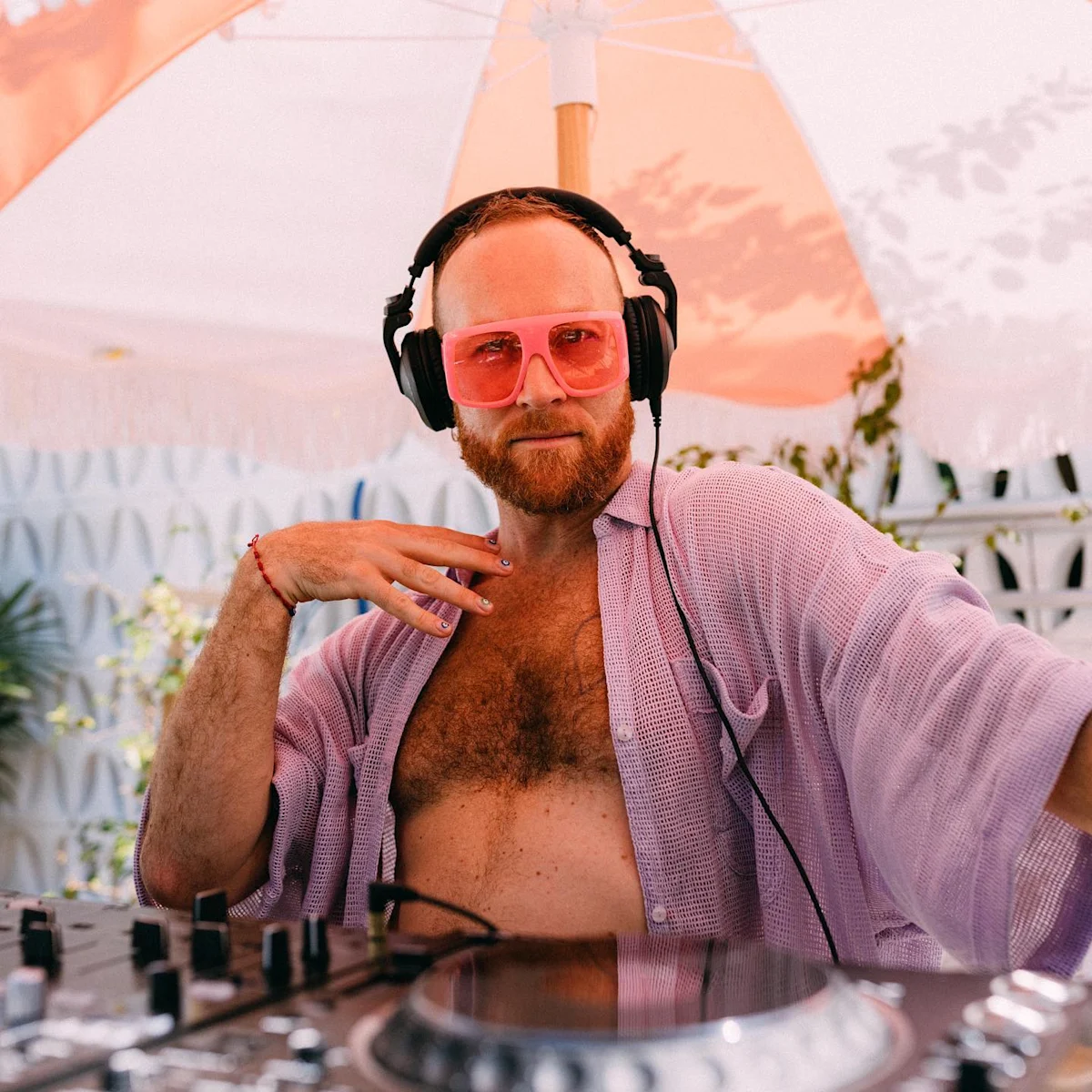
Did your family eventually move from Penetanguishene?
Yeah, we had to relocate to Ottawa where the Parks Canada headquarters were. So we moved outside of Ottawa.
Then you came here to Toronto for journalism school?
I went to Centennial College for journalism, which I fucking loved. I hated university. I was so useless. My brain was not that type of brain. I wish I would have known that.
Some aren't.
You know? I much preferred being with these professors who were actually professionals. One of our professors was a CBC correspondent, one was from CityTV, another was from CTV. They were all just in the field, but also teaching. I loved it so much and learned at a rapid pace. Something clicked.
Then you started practicing journalism?
At Centennial, their big thing was that they promised to provide a placement at the end of the program. I wanted to go to Chart Magazine, which was a music magazine of note at the time.
Kind of like Billboard.
Yeah, Canada’s Billboard. I got in as an intern, then as a writer, and was there for ever and ever. It didn’t pay anything, but that’s where I got my chops. I went to all the concerts at every hour of every day.
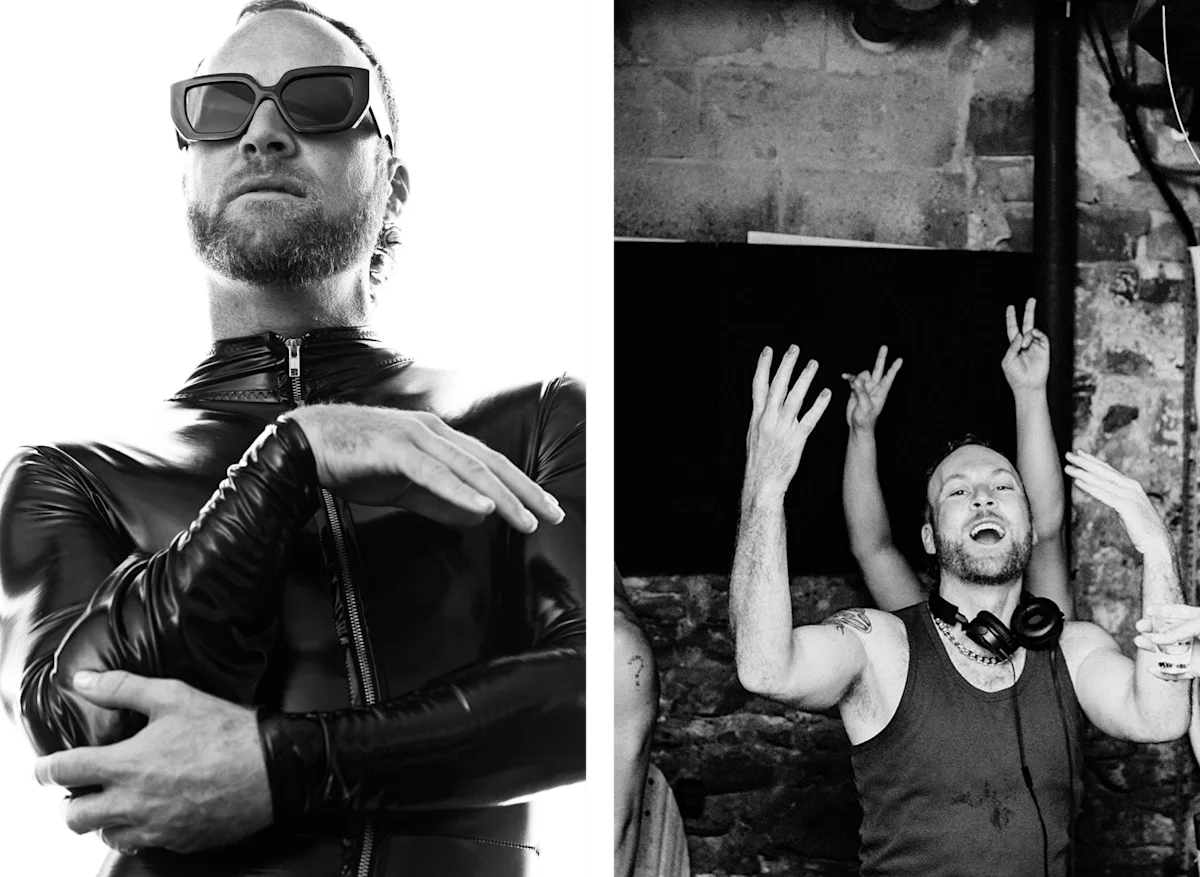
So, the whole world of music started to filter into your environment. Is that how you started to DJ?
No. You know, on top of that I was lucky enough to get this job at Puretracks.com, which was the official competition of iTunes at the time. This was before the peak of Napster and illegal downloads. We were in meetings with every major label in North America. It was really wild. I then built a music library from working there, because I had access to every album and every mp3 you could imagine, ever. They would deliver it to us on these harddrives, and I had access to everything. It was amazing. Then I just started throwing parties for friends. My first one ever was at the Rhino, upstairs in their party room.
I’m curious what your DJ philosophy is, and what music you gravitate towards?
I think it has to do with how things went after that. Puretracks, and the music industry, kind of collapsed and we were purchased by the company that made Solitudes music, like nature sounds with classical music? They bought us. So, I started interning at Fab Magazine, which was the gay glossy magazine here in the city, and then slowly but surely became their music editor. Again, I was doing music reviews for Chart, and for Fab, and the gay part started to really take over. Through that, DJing continued, kept being more and more gay, and then I became the editor of Fab magazine! Through that, even gayer, and more parties, and I became more confident, just throwing parties in Toronto and I just kept leaning towards queer parties in the Village or the west end.
Do you think there was a correlation between queer/gay/dance culture becoming more a part of the fabric of Toronto as the years went on and more horizons opening up for you to participate in the ways that you wanted?
I think there was definitely a movement out here in the west. The Village always existed, and it has its parties, its DJs, and it’s fine, you can try and get in there if you wanted to, but there was definitely something happening out here at the time that was part of the whole Will Munro era, creating this Queer West moment out here. There was a momentum to create really fun parties; a lot of what Will was doing at the time, a lot of dyke parties that were more punk and electro, and I was still pop and gay, but not like Village, traditional gay, somewhere in-between. We could still have fun, not take things so seriously, still be super gay, and appreciate things like disco, and vocals, and divas, but just in this environment.
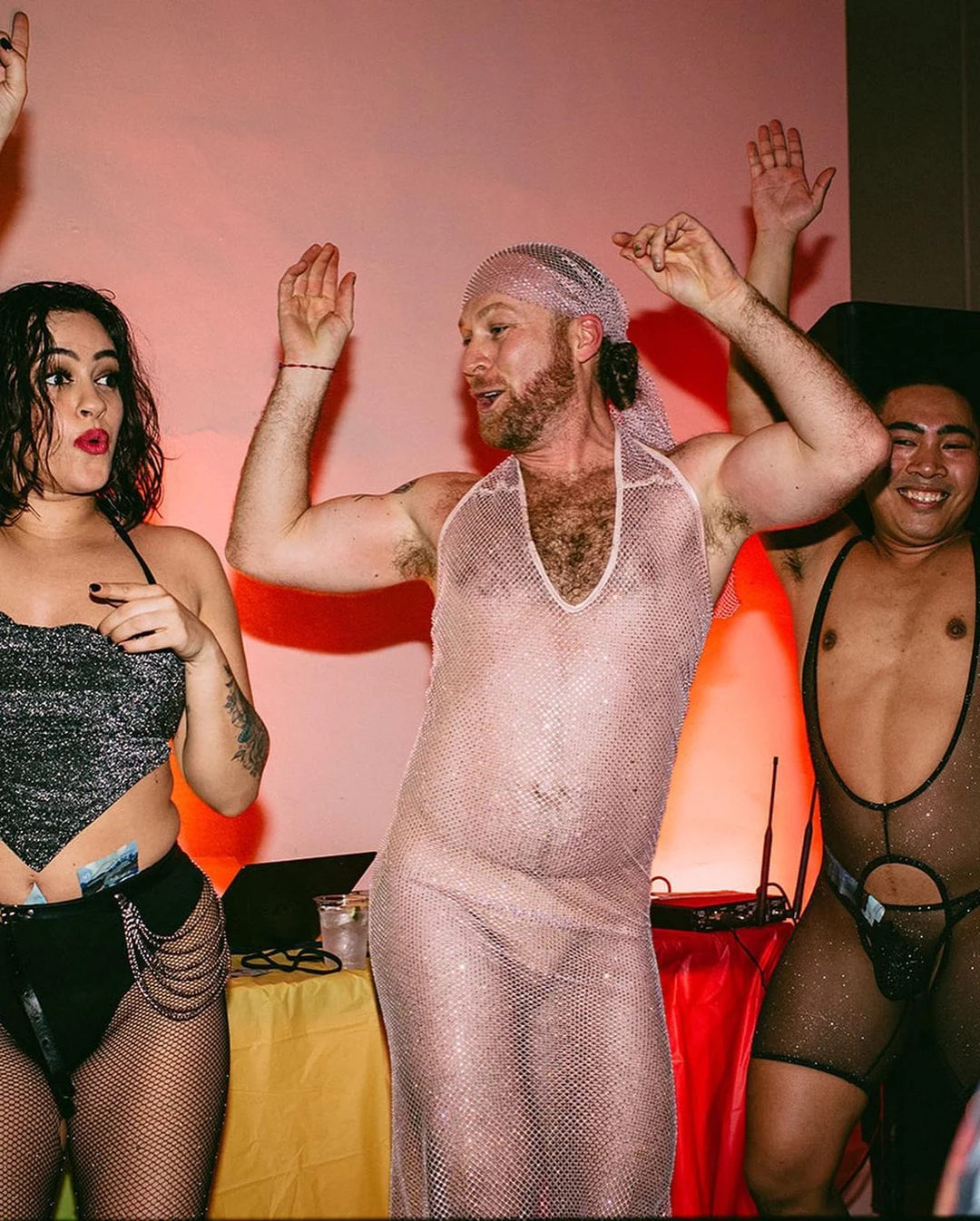
It sounds like once this new space opened up it could be defined as it went by the people that were involved. It didn’t have this overarching “we are the village”, it was total creativity.
Totally. One of my big DJ moments was when someone I was a fan of, and then became friends with, was one of the organizers of Big Primpin, which was this “hip-hop for homos” party out here at Stones Place. It was a hip-hop, r&b party for queers out here in the west end. At that point that was unheard of, especially for a mostly white queer crowd. There were definitely already black queer parties happening all over that we were just not a part of, definitely not on the west end here. I started DJing there for years and years and years, and got confident in front of crowds, and that started drawing people from the Village out here. That was the party that bridged that. They realized there was a west end. So, it became two things that were options.
You are also semi-famous for spontaneously dancing. What is that about?
[Laughs] I don’t know! We just did those for fun. I did a home movie one year, literally, for my family, because I didn’t have any money to buy presents. It involved me dancing in different parts of the city for no reason, and we just put one of those videos on YouTube for no reason. I don’t even think we were smart enough to give the link to our families, and we weren’t streaming. Somehow people started watching, and we kept doing them more and more. Then we did one on the subway to a Kylie Minogue song with this queer dance troupe here in Toronto, and Kylie Minogue’s people saw it, and it blew up. She tweeted it and it went viral. Then I met her.
You met Kylie Minogue!
Yes! They asked if I could get to Montreal, so I left my job to go meet Kylie.
Was that a dream come true? Coming from Penetanguishene, listening to Dance Mix!
Imagine! And now Kylie is like ‘come meet me’! Yes [Laughs] What are you talking about? Then we did more, and the same thing happened with Robyn, who also shared, and retweeted, and loved it and they were like ‘Robyn wants to meet you at Coachella.’ Ya, I’m coming, I’ll be there. We hung out by her bus, by this river. She just wanted to hang for like fifteen minutes to talk, and see what’s up. Then Solange was the other massive one. We did one with Kesha as well, but Solange was the big one. Scissor Sisters, we also met them! Same thing, they were like ‘who are you? Come to our concert!’ Solange was insane, because she retweeted and then we kind of tweeted back and forth and then I went to her concert and she called me up on stage. She’s like ‘if Phil’s here tonight, he recorded a video and he’s from Toronto.’ I died, I could not move. I was frozen. It hit my friends too and they were pushing me and screaming and then the crowd pushed me onto the stage and we danced to a song on stage.
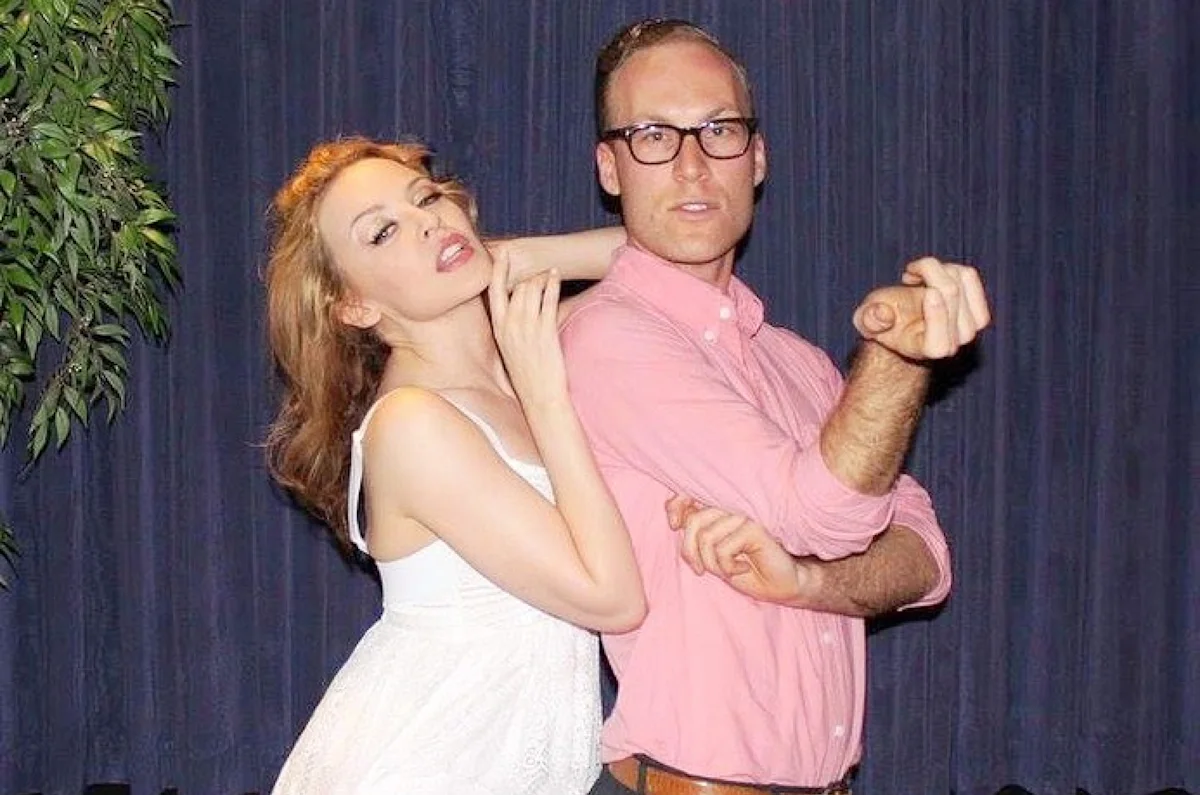
Incredible.
Those were just for fun. Just to make people dance and happy. That’s it.
There’s not enough spontaneous dancing on the street. Considering how connective it becomes and how instantaneously people feel the need to participate. Some people get uncomfortable, but it is amazing how contagious it can be, or how joyful it can be even for people who aren’t dancing.
Even if they’re just seeing it happen. This was pre-flashmob stuff that became huge. We started to get mixed into that, which I didn’t like, because I don’t love flashmobs. They’re a bit cheesy. We were literally like, show up to No Frills and dance in the grocery and get kicked out – if we get kicked out. We did one in Bulk Barn because we wanted to do one in Shoppers, but we got kicked out. That was with Wannabee, and we did a Spice Girls song together.
Did you leverage that for anything, or did it lead anywhere?
It led to a lot of shit, for sure. Maybe more people came out to parties. We were covered in Now, BlogTO, Globe TV, CTV, which was really fun and nice, but we never turned it into a business, but it was a part of what led me here, to Yohomo, to being able to DJ full time. It led me to be gay enough and out there enough that people would follow me
Can you talk a little about Yohomo and Musical Bingo?
Fab closed and I moved over to Xtra, where I was the arts editor. Then they also closed, and there was nowhere to find out where queer people could go on the weekend, or to spotlight anyone. Xtra still exists, and respect to them, there’s still a lot of amazing people that work there, but it’s not reflective of our community in a real way at all. So, that’s what Yohomo is. My friend and I, Armand, we know the people, we’re a part of all these scenes, so we’re on the streets, and we know what’s happening. It’s online, and we have merch, and a blog, and a few big parties a year. Pride is our big one, called Love On Top, but otherwise it’s all year. We hit this sweet spot, because we’re so old school we just know all the scenes and all the people and we’re cool with everyone.
There’s no gatekeeping.
No ego at all! Everyone comes to the party! We just did a photoshoot for our pride campaign, and even for that we asked everyone, from the little baby rave children to the elders, to be a part of it. We love them all, and they love us back.
And musical bingo is an event you put on?
That’s a thing that I started with a friend who worked at Soho House. It was two women actually who approached me that I go way back with. They were like ‘you’re fun, do you want to start this thing here and see if it works.’ We did, and it was a shit show. It’s based on this game in the UK, and we fucked it up so hard so many times. I also became really good at fucking up really big in front of a lot of people and just rolling with it. If they don’t know, then nothing’s wrong.
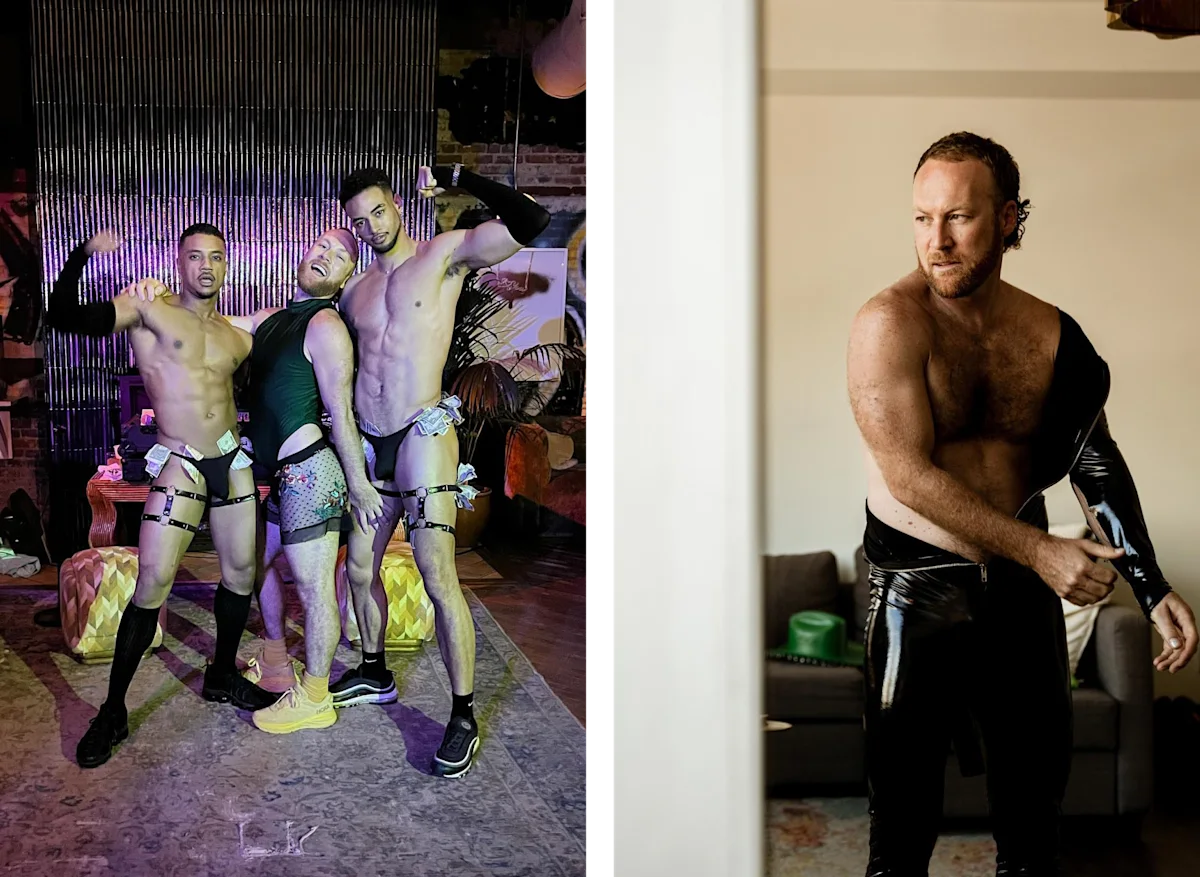
It’s a talent.
It really is! I’m relaxed, everything’s fine. What’s the big deal? Whereas if you panic, then they panic.
It all falls apart so quickly.
So, we started doing it and it took off. It became a monthly thing at Soho House Toronto. Through journalism I was going to Miami every year to cover Pride. You know, when they would send journalists traveling and stuff? Then that ended, but I didn’t want to stop going to Miami, because I just love it, so I approached Soho House Miami and said ‘you guys need musical bingo here.’ So we tried it, and it really worked, so they started bringing me back every Pride, for the past eight years. From there, I said we need one in New York, so I would bug the New York one. And they all said yes. And it would work everytime. Now we do these games, and my friend is the head of North America. She has grown through the system and I’ve been growing with her. She’s like ‘we’re putting bingo all through America and we’re going to Europe, so let’s go!’
What can I expect going to musical bingo?
It’s bingo, you get a card, you get a dabber, but instead of B-I-N-G-O with numbers it’s song titles, artists, and song names. I choose a theme every month, and because of a deep love and knowledge of music I can create games that are not just generic, corporate, and safe, but filled with songs about ass, for example; a full game of songs about booty from all eras! You need seventy-seven songs that also keep a flow of a party for two hours.
It sounds very curatorial. I’m interested in this aspect of curation when it comes to DJing. It sounds like it’s very important to you. Is that what DJing is about for you?
That’s such a nice question. It is for sure. That’s why I love it, that’s why I’m still doing it as a forty-two year old. That’s why I still take struggle gigs, that’s why I still take tiny gigs all over the place too. It’s more about that than anything else. I’ll do multiple nights in Toronto that I’m lucky enough to have, that people trust to come to. One is a party where I DJ off people’s butts; live off people’s asses. That’s a really sexually liberating night.
So, you’re picking songs that have that vibrancy to them, the alleviation of the body?
Ya, that energy! I love house music, but I also have a deep love for French music, for a lot of weird slow Argentinian, Peruvian, cumbia. I love branching all over the place. In the pandemic, I was playing parties in parks where I’d play weird slow music to eat mushrooms to. Just going with the times in the world and what’s happening. I thrive off of that.
Is DJing your form of expression?
One hundred percent. Just getting up there, and rarely fully planning a set, but moving with the room, moving with what happened in the world that week, or what happened personally. Playing gigs sometimes where you’re just balling in the dark and no one can see! Just moving with what’s happening, but always with a wink to queerness at all times, because I can’t do anything else, that’s all I know.
–Work Redux is a collection of mixes made to be listended to while working. We work closely with local and international DJs to assemble thoughtful music that will carry members throughout their day and introduce them to new sounds. East Room is a shared workspace company providing design-forward office solutions, authentic programming and a diverse community to established companies and enterprising freelancers. We explore art, design, music, and entrepreneurship, visit our news & stories page to read more.